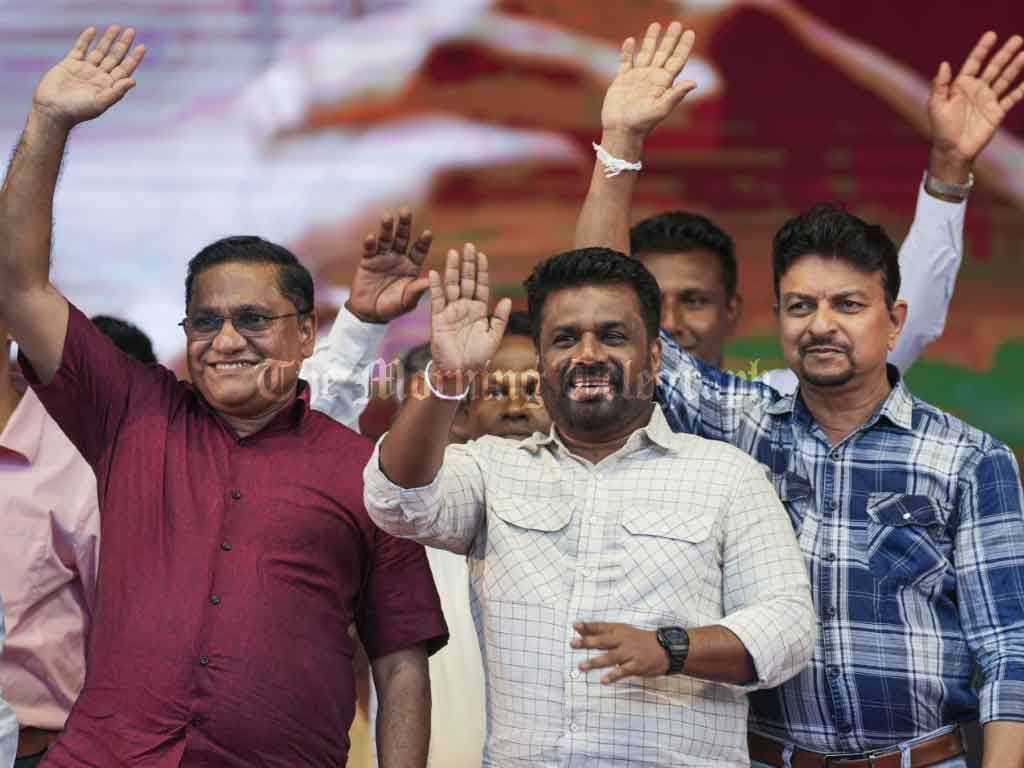
Sri Lankan President Anura Kumara Dissanayake is pushing for a strong victory for his National People’s Power (NPP) party in Thursday’s parliamentary election, aiming to build support for his economic reforms and promises of improved governance. Dissanayake, a Marxist-leaning leader, won the presidency on September 21 in a vote that signaled public dissatisfaction with Sri Lanka’s traditional political landscape, dominated since its independence from British rule in 1948.
Despite this breakthrough, Dissanayake did not secure over 50% of the presidential vote, which has raised questions about his party’s ability to perform in the parliamentary race. To win a majority in the 225-member Parliament, his NPP party needs to improve its 42% share from the presidential election and capture at least 113 seats. At a rally on the final day of campaigning, Dissanayake urged supporters to give the NPP enough seats to avoid reliance on a coalition. “A strong government should be formed to rebuild the country. A government that is unshakable in the Parliament should be established. And to do that, Parliament should be filled with elected members from our party,” he told the crowd.
Dissanayake now faces the challenge of balancing his reform promises with the IMF agreement signed by his predecessor, Ranil Wickremesinghe. Although he initially suggested modifying the IMF’s terms to ease public burdens, Dissanayake has since agreed to proceed with the agreement, which is part of a broader effort to stabilize Sri Lanka’s economy after years of crisis. As part of this, he informed supporters that an IMF team would arrive soon after the election to conduct a third review, stating, “By the end of January or the beginning of February, we will complete that task. By then, we will be able to secure considerable stability in the economy.” He also noted plans to introduce his administration’s first budget in February, which he said would include tax cuts and salary hikes for government workers.
Political analyst Jehan Perera commented on Dissanayake’s approach, noting, “He has been careful and played it safe by continuing with most of the policies set by his predecessor. He has been sensitive to the concerns of the business community that any deviation from the IMF agreement could cause the economy to unravel.” Perera added, “The president has been careful not to rock the boat or sink it, as the opposition warned.”
Sri Lanka’s economic troubles have been driven by a combination of factors: tax cuts in 2019, the impact of the COVID-19 pandemic on tourism and remittances, and the depletion of foreign exchange reserves, which led the country to default on its debts and endure severe shortages. These conditions also forced former President Gotabaya Rajapaksa to resign in 2022, with Wickremesinghe succeeding him and enacting stabilization measures, including tax hikes and reduced subsidies, to comply with the IMF. While these moves helped stabilize inflation and strengthen the local currency, they led to Wickremesinghe’s defeat in the presidential election amid rising public frustration over living costs.
Dissanayake’s campaign has gained support from voters disillusioned with established parties. Ruwan Sanjeewa, a 36-year-old laborer, attended a recent NPP rally in Gampaha and expressed his hopes for change: “See the plight of the country today. Traditional political parties who ruled this country over the last few decades have failed to deliver what they promised. We are now in a very pathetic situation. So, I want to give a chance to NPP. Let’s see what they will do. I am hopeful the NPP might do something good for this country.”
Source :- AP




